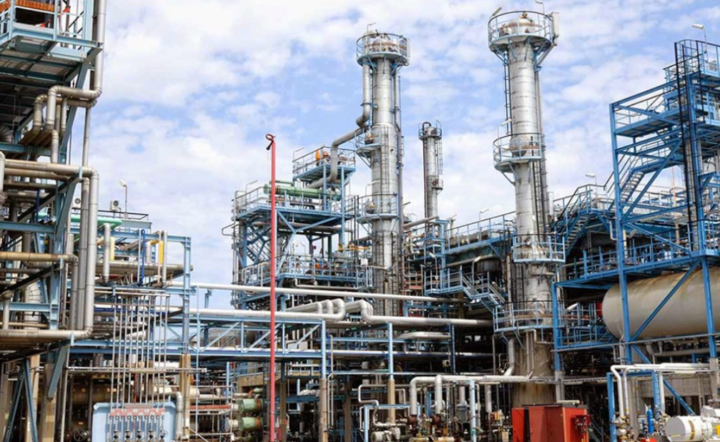The Crude Oil Refiners Association of Nigeria (CORAN) has warned that the recent wave of protests targeting refinery operations across the country could derail Nigeria’s fragile economic progress and undermine investor confidence in the oil and gas sector. According to the association, the disruptions risk reversing gains already made in expanding local refining capacity and could aggravate inflationary pressures, increase import dependence, and threaten energy security.
CORAN explained that refineries, both government-owned and privately operated, are strategic national assets whose stability directly affects the nation’s economy. With the emergence of large-scale projects such as the 650,000-barrel-per-day Dangote Refinery and ongoing upgrades to state-owned facilities, Nigeria had begun to make progress toward reducing dependence on imported petroleum products. The association said this shift was vital to conserving foreign exchange, stabilizing pump prices, and supporting job creation. However, the protests, if sustained, could halt this progress and force the country back into heavy reliance on imports at a time when foreign reserves remain under strain.

Industry observers note that Nigeria’s economic environment is already under pressure, with inflation at high levels, the naira struggling to regain full stability, and debt servicing costs weighing heavily on fiscal space. CORAN argued that refineries are a central pillar in the strategy to ease these pressures, but disruption of their operations could cause widespread ripple effects. The association noted that disruptions inevitably lead to fuel scarcity, which in turn triggers hikes in transport fares, higher logistics costs for businesses, and ultimately broader inflationary pressures that hit citizens hardest.
The group stressed that while protests may be fueled by legitimate grievances among workers, host communities, or civil society groups, shutting down or obstructing refinery operations only deepens the suffering of ordinary Nigerians. It urged that dialogue and negotiation should replace confrontation, warning that prolonged unrest could shake public trust in the refining sector’s ability to deliver stability. At a time when Nigerians are looking to new investments in refining to end decades of fuel shortages and queues, any instability risks prolonging hardship and delaying the benefits of self-sufficiency in petroleum products.
CORAN also expressed concern over the impact of refinery protests on investor sentiment. Nigeria has been working to attract large-scale private capital into the oil and gas sector, with hopes of building out infrastructure, boosting production, and expanding downstream industries. However, sustained unrest at critical facilities could drive investors to other, more stable African markets. Refineries are projects that require billions of dollars in patient capital, and investors want assurance that their commitments will not be endangered by uncertainty. According to CORAN, unchecked protests may send negative signals and slow the momentum of much-needed foreign and domestic investment.
The association’s intervention comes at a time when the federal government is banking on increased oil production, curbing crude theft, and expanding refining capacity to stabilize its revenue base and strengthen the balance of payments. These reforms were expected to reduce Nigeria’s import bill for refined petroleum products and free up scarce foreign exchange for other productive uses. CORAN warned that instability in refinery operations could reverse these gains, forcing the country to spend billions annually on imports and exposing it once again to global oil price volatility.
The association has therefore called for stronger protection of refinery sites, describing them as strategic assets on par with airports, seaports, and power plants. Refineries, it argued, not only provide energy security but also create employment opportunities, support petrochemical industries, and open pathways for industrialization. If left vulnerable to disruptions, Nigeria risks undermining a critical foundation of its economic recovery.
In outlining solutions, CORAN urged government and stakeholders to establish permanent conflict-resolution frameworks to address disputes swiftly before they escalate into nationwide protests. It also recommended stronger engagement with host communities, transparent communication of policies affecting refinery operations, and consistent regulatory support to foster stability in the refining environment. The association argued that such measures would help build trust among stakeholders, minimize disruptions, and ensure that refineries fulfill their potential to support growth.
Analysts have also pointed out that refinery disruptions at this time could have broad macroeconomic implications. Nigeria had recently made progress in increasing crude oil output closer to its OPEC quota, with production stabilizing above 1.4 million barrels per day after years of decline caused by theft and sabotage. Combined with refining growth, this momentum was expected to improve fiscal revenues and ease foreign exchange shortages. If refineries are allowed to remain unstable, these achievements could be undermined, forcing the country into yet another cycle of fuel scarcity, rising inflation, and foreign exchange depletion.
CORAN’s warning underscores the urgent need for cooperation among government, communities, labor unions, and private investors in safeguarding refinery operations. The group stressed that refining should not be treated as a battleground for disputes but as a national lifeline that supports millions of Nigerians. With the right policies and protections in place, Nigeria has the chance to build a resilient refining industry that fuels sustainable development.
The association concluded that protecting refinery stability is not only about securing energy supply but also about safeguarding the broader economy. As the nation stands at a pivotal moment with opportunities to achieve energy independence and industrial growth, the path forward requires dialogue, consistency, and collective responsibility. Failure to secure refineries from prolonged disruption could undo years of reform efforts and postpone Nigeria’s long-awaited transition to economic resilience.
Support InfoStride News' Credible Journalism: Only credible journalism can guarantee a fair, accountable and transparent society, including democracy and government. It involves a lot of efforts and money. We need your support. Click here to Donate
